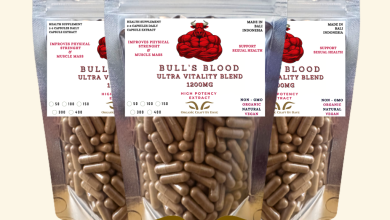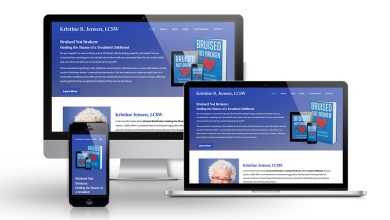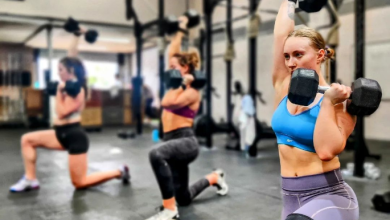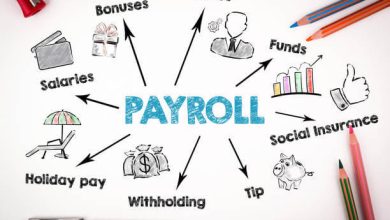Top Energy-Saving Tips for Your HVAC System

Keeping your home comfortable with heating and cooling can be expensive, especially if your HVAC system isn’t running efficiently. With a few smart changes, you can reduce HVAC energy consumption, lower your utility bills, and make your home more eco-friendly. In this article, we’ll explore practical energy-saving HVAC tips that anyone can implement.
- Regular Maintenance: The Key to Efficiency
One of the simplest and most effective ways to save energy with HVAC systems is regular maintenance. When your system is well-maintained, it works more efficiently, uses less energy, and lasts longer. Consulting an HVAC expert can ensure you’re doing everything necessary to keep your system running smoothly.
Maintenance tasks that improve efficiency:
- Replace air filters every 1 to 3 months to ensure airflow is not restricted.
- Clean coils and fan blades to reduce strain on the system.
- Check refrigerant levels and ensure proper charge for optimal cooling performance.
- Inspect ductwork for leaks and ensure that air is properly circulating.
These small tasks can significantly improve your HVAC system’s efficiency, making a noticeable impact on your energy bill.
- Upgrading Your Thermostat: A Simple Change for Big Savings
One of the easiest ways to improve HVAC energy efficiency is to upgrade your thermostat. Modern smart thermostats can automatically adjust temperatures based on your schedule, ensuring your system isn’t running when no one’s home.
Benefits of smart thermostats:
- They learn your habits and adjust heating or cooling based on occupancy.
- You can control them remotely from your smartphone, so if you forget to turn the system off before leaving, it’s easy to fix.
- Programmable thermostats allow you to set specific temperature schedules, saving energy during the hours you don’t need heating or cooling.
- Improving Insulation and Sealing Leaks
Poor insulation and air leaks can lead to massive energy waste. Ensuring your home is properly insulated and sealing any leaks in ductwork or around windows and doors will reduce the load on your HVAC system.
How insulation helps HVAC efficiency:
- Proper insulation keeps conditioned air inside your home, reducing the amount of energy your system needs to use.
- Sealing leaks prevents heated or cooled air from escaping, making your home more comfortable without overworking your system.
If you need assistance identifying issues with insulation or ductwork, contact a professional HVAC company to assess your home and suggest improvements.
- Using Energy-Efficient HVAC Systems
If your HVAC system is outdated, upgrading to a newer, more energy-efficient model can make a big difference. Today’s energy-efficient HVAC systems use less power to produce the same amount of heating or cooling.
Features of energy-efficient systems:
- Look for systems with high SEER (Seasonal Energy Efficiency Ratio) ratings, as these indicate better efficiency.
- Consider systems with variable-speed motors, which adjust the speed to provide consistent comfort without excessive energy use.
- Geothermal heat pumps and ductless mini-splits are also highly efficient options to consider.
Consulting an HVAC expert or a professional HVAC company can help you choose the best system for your home and needs.
- Adjusting Temperature Settings for Maximum Efficiency
It may seem obvious, but adjusting your thermostat can result in significant energy savings. During the warmer months, set your thermostat to a higher temperature when you’re away from home, and in winter, lower it slightly.
Optimal temperature settings:
- In the summer, keep your thermostat set to 78°F when you’re home, and increase it when you leave.
- In the winter, set it to 68°F while you’re awake, and lower it when you’re sleeping or away from home.
Small adjustments like these can lead to noticeable reductions in HVAC energy consumption.
- Utilizing Natural Ventilation and Shade
Take advantage of natural ventilation and shade to reduce the workload on your HVAC system. By using natural airflow, you can cool your home without relying entirely on air conditioning.
How to use natural ventilation:
- Open windows and use fans to circulate air during cooler parts of the day.
- Use blinds, curtains, or shades to block direct sunlight and reduce heat gain in your home.
Landscaping can also play a role. Planting trees or shrubs around your home can provide shade and reduce the amount of heat that enters through windows, helping your HVAC system work more efficiently.
- Reducing Heat Gain from Appliances
Many household appliances generate heat, which can increase the workload on your HVAC system, especially during the summer.
How to reduce heat gain from appliances:
- Use your oven, dishwasher, and dryer during the cooler parts of the day.
- Switch to energy-efficient LED lights, which produce less heat compared to traditional bulbs.
- Unplug electronics when not in use to reduce heat and energy consumption.
By reducing heat gain, your home will stay cooler naturally, requiring less work from your HVAC system.
Conclusion: Small Changes, Big Savings
Optimizing HVAC efficiency doesn’t have to be difficult. By following these energy-saving HVAC tips, you can make your home more comfortable while reducing your HVAC energy consumption and lowering your utility bills. With regular maintenance, smart thermostat use, proper insulation, and other simple steps, you’ll see both immediate and long-term benefits. Take action today by reaching out to a professional HVAC company or an HVAC expert to improve your HVAC system’s efficiency and enjoy the savings!









